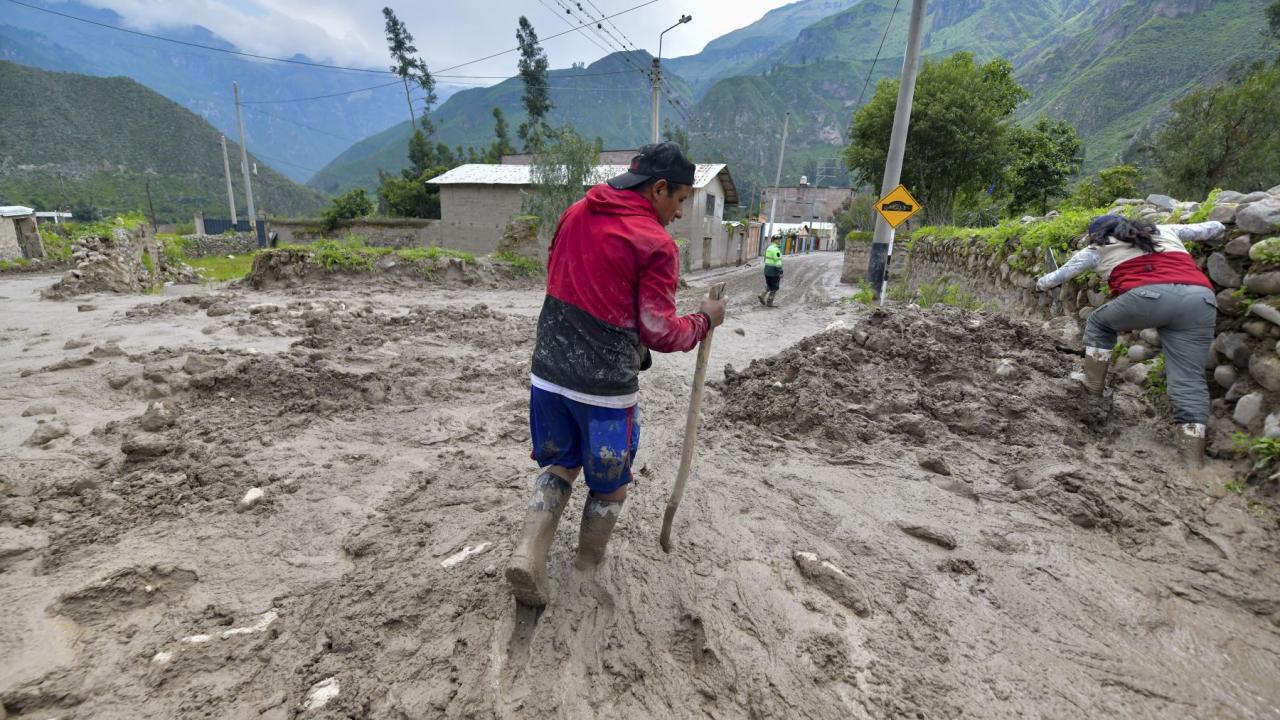
The adverse impacts of the climate phenomenon affected Peru's economic growth in 2023 and brought damage to the agricultural sector, which according to experts had the worst decline since 1992.
The El Niño phenomenon, with warm water temperatures and the probability of high rainfall, would continue until March on the coast of Peru, and then dissipate in April, an experts' report revealed on Monday.
The adverse impacts of the El Niño climate phenomenon affected Peru's economic growth in 2023 and brought damage to the agricultural sector, which according to experts had the worst decline since 1992.
The commission in charge of studying El Niño in Peru, ENFEN, maintained the "coastal El Niño alert" in its latest report published on Friday night and indicated that the event would continue until the end of March as a "consequence of the variability of regional climatic conditions".
Coastal El Niño is a climatic event that is linked to the presence of anomalously warm waters persistently for several months in the Pacific Ocean, mainly along the northern coast of Peru and Ecuador.
Its presence may be associated with intense rains in some areas of the coast of Peru and changes in the Peruvian marine ecosystem.
"Maintaining the alert means that the sea is still warm (...) If the sea is still warm, it means that we are still with the El Niño phenomenon underway and if we are under the El Niño phenomenon, the climate threat, the threat of rains is not ruled out," fisheries biologist Carlos Bocanegra told a local television channel on Monday.
The report of the expert commission on El Niño in Peru states that it is "likely that warm conditions will vary from moderate in March to weak in April."
For climate expert Abraham Levy, this weakening process is already underway and is part of the dissipation of El Niño.
"In fact there will be hot days - like today and tomorrow - due to northern winds on the coast, but the oceanic issue (of supercooling of the waters) will continue its course," said Levy in his X account.









